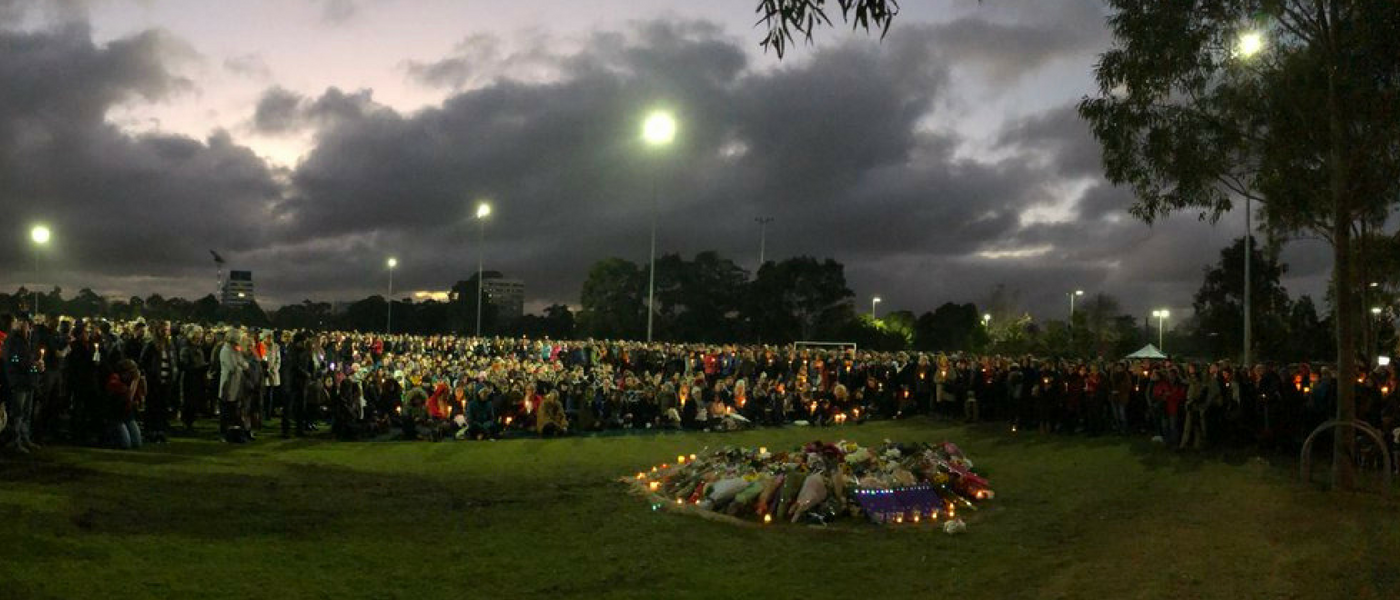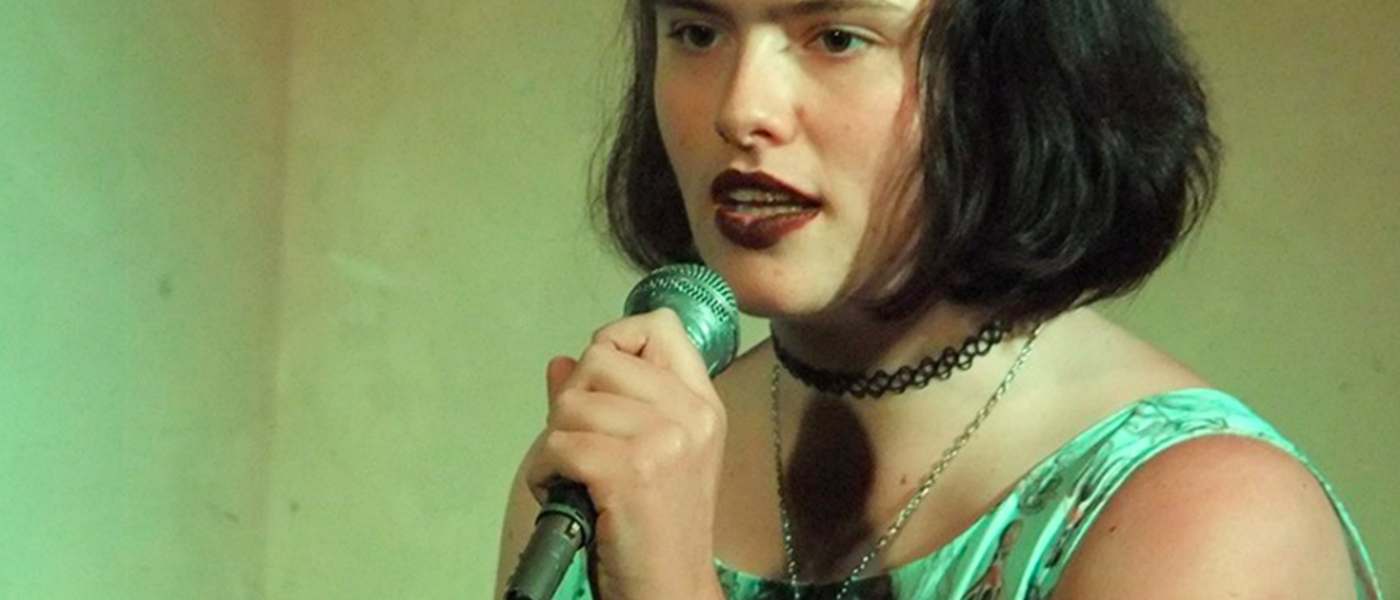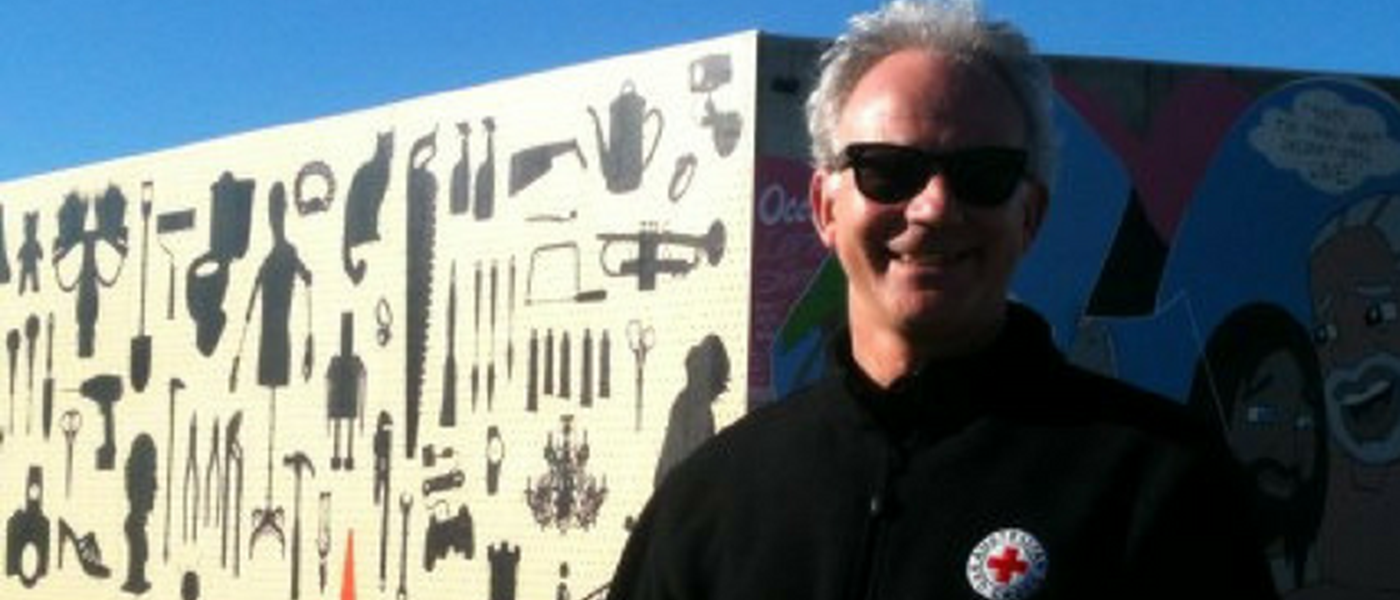In his own words
The country has been deeply affected by the rape and murder of young comedian Eurydice Dixon. Our National Resilience Advisor John Richardson shares his raw personal experience of the public grief.

It was cold and clear that night we walked across Princes Park.
My friend Joe said, “I guess we go in this direction?” My daughter Emily said, “Let’s just follow the people”. There was a steady stream of thousands heading towards a vigil being held in remembrance of Eurydice Dixon, a 22-year-old woman raped and murdered on Tuesday 12 June. Eurydice was a young aspiring comedian on her way home from a gig. Her death had generated much media attention.
The vigil that followed a week after Eurydice’s death was a way to remember, to pay respect, show solidarity and reclaim public spaces for everyone. A coming together in the face of terrible and unnecessary tragedy. Our volunteers were present in Princes Park, providing personal support and standing with the community.

These sort of tributes allow us to make a little sense of the horrible events. To come together and share the sadness, but also to find some hope.
The vigil was a simple enough affair. The floodlit soccer pitch, a mainly young crowd. Possibly 15,000 all together, all rugged up against the bitter cold of a Melbourne winter’s night. People sharing candles. A Welcome to Country, then darkness.
The floodlights went out. The white light transformed to the warm orange glow of candles against the dark night sky. We stood in silence for twenty minutes. There was a kind of peace, as everyone focussed in on the moment. Some people hugged, others stood still.
A community’s collective breath released into the cold air.
Yet the sounds of the city remained in the background, keeping us connected to the outside world. The distant roar of a light aircraft. The sound of a baby crying. Dogs barking. A tram bell dinging, and the ever-present hum of traffic taking people home.
It was a time to reflect on the tragic events, take stock of what had happened there, and what happens every single week, somewhere in this country.
The site of the vigil started as a small spontaneous memorial which sprung up where Eurydice’s body was found. Red Cross had teams of volunteers there over the weekend, simply to listen if people wanted to talk.
Some of the volunteers there that weekend after the tragedy were particularly moved by a group of footballers who came over and circled the memorial. They stood quietly to pay their respects. Our volunteer team leader Damo (Damien) told me of a powerful moment when one of the coaches spoke to the teenage boys.
“Boys, take a moment. I want you all to think about the women in your life. Not just the important women, all the women.”
He and the other Red Cross volunteers watched in silence. It was a moment, he said, “that a bit of hope hammered its way in to an old bloke’s jaded heart”.
A simple, but no doubt powerful step towards promoting real respect for women.

It is not often you are completely still alongside 15,000 other people for 20 minutes. I looked around and marvelled at the sheer numbers of those who had gathered there, realising that each one of them came not just out of respect for Eurydice but also out of the yearning to be part of something bigger, a movement standing up for what’s right, a yearning for a connection to each other’s humanity, to their own humanity.
A community connected
These tributes highlight the importance of community and connection in times of crisis. We draw on others for support, whether it be practical or emotional. We are also comforted when we know we are not alone in our grief. When we can see that others are sharing what we are going through, it helps in our recovery, as individuals and as a community.
To those who feel these sorts of tributes are empty gestures, or do nothing to ease the suffering of others, for anyone who thinks that community is dead, they should take a close look at what happened that night in Princes Park.

In those moments of silence, I thought of my school friend. She’d left her husband. But when she returned to their house to collect some of her belongings he stabbed her to death. I think of the sobs of the woman I nursed back when I worked in a hospital while on night shift. Her husband had laid in wait for her and beat her with an iron pipe when she returned home. I thought of my friend’s daughter who was attacked in broad daylight. Just out for a jog, and a man thought it was okay to grab her.
This is what women deal with, every day. This is why we have vigils. Far too many vigils.
Then came the sounds of a choir in the distance, and we could just make out the lines of Leonard Cohen’s ‘Hallelujah’. Then each in their own time, started to move. No ‘thank yous’ or ‘it’s over’. Just thousands of people paying their silent respects to a woman brutally and violently taken from us.
Finding hope
On the tram home, the candle that I had in my pocket fell out and rolled across the floor. The woman opposite me, picked it up, looked at me, and handed it back. She didn’t say anything, I didn’t say anything, just “thank you”, but there was an understanding that we had been part of something bigger than ourselves.
Today, I am filled with sadness and anger at what happened to Eurydice, but I am also filled with hope. Hope that we can continue to come together as a community at times like these. Times when it really matters.
I have hope that we will continue to speak out and act up when we see poor behaviour, whether it’s a sexist joke, a racist comment or violence. If we continue to do that, change will come and hopefully we won’t have to have these vigils in the future.
Until then, let’s keep our community connection, let’s reach out to those who may be struggling, because we do recover better together.
John Richardson is our National Resilience Advisor.
If you feel distressed or angry after this terrible tragedy, consider consulting our guide for coping with stressful situations. You'll find advice that may help you, your children or your friends to get through.
Charity donations of $2 or more to Australian Red Cross may be tax deductible in Australia. Site protected by Google Invisible reCAPTCHA. © Australian Red Cross 2024. ABN 50 169 561 394